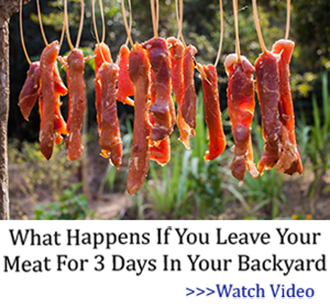
If you’ve been thinking about beekeeping as a source of food and barter, you’re not the only one. Beekeeping is gaining interest among preppers and those who would just love to have their own source of honey. However, before you start beekeeping, remember these following dos and don’ts.
DON’T Start Beekeeping Without Doing Research
Before you start getting your equipment, you need to know some basic information such as where you can keep an apiary (beehive), if your neighbours mind having a beehive near them, and whether or not anyone is allergic to bee stings in your family. That last one very important.
DO Find Out if You’re Zoned for an Apiary
You don’t need your city or town to haul you into court because you violated zoning laws. Find out if you can keep a hive on your property. Also, be aware that you need some space for a hive. You can have two hives on a tenth of an acre.
Also read: 10 Interesting Wild Plants for Food and Medicinal Uses
DON’T Buy a Colony that Hasn’t Been Inspected by the State
It may be tempting to buy someone else’s hives but if an apiarist from the state’s department of agriculture hasn’t inspected the colony, skip buying it. The colony could have a contagious disease that may force you to kill the bees and destroy your equipment and start over.
DO Purchase Your Bees from a Reputable Source
You can get your bees through the mail from an inspected, reputable source. A quick Google search will give you a plethora of options. You might even be able to find a local dealer.
DON’T Purchase Someone Else’s Equipment
That equipment may be contaminated with disease that your bees can contract.
DO Buy New Equipment and DON’T Build It
To get started in beekeeping is relatively cheap. Your apiary will run about $100 and your suit will cost around $150. Plan on the bees costing between $75 to $100. Other equipment will probably bring the total price to less than $500. You don’t want to build the equipment yet because you need to have a complete understanding how everything works. Only after you get experience with the equipment will you have enough knowledge to build a proper apiary.
DON’T Do This Alone
While you may be tempted to learn how to handle bees by yourself, it’s better to have a knowledgeable apiarist show you how to handle the bees. It can be very intimidating handling bees if you don’t know how and your actions can actually agitate the colony. You can find experienced mentors who would be happy to talk with you by contacting your local county extension office and having them put you in touch with a knowledgeable beekeeper. You can also contact the American Beekeeping Association for a contact in your area.
Just DO it!
Starting with bees can be a little overwhelming, and if we’re being honest, even a little scary. There will be plenty of people telling you it’s a bad idea. Don’t pay attention to the naysayers, they’re always going to be around. All that sweet honey isn’t going to produce itself!
Post by John Miler
Self-sufficiency and Preparedness solutions recommended for you:
BulletProof Home (A Prepper’s Guide in Safeguarding a Home)
The Lost Super Foods (126+ Survival Foods and Tips for Your Stockpile)
Alive After the Fall (Build yourself the only unlimited water source you’ll ever need)


